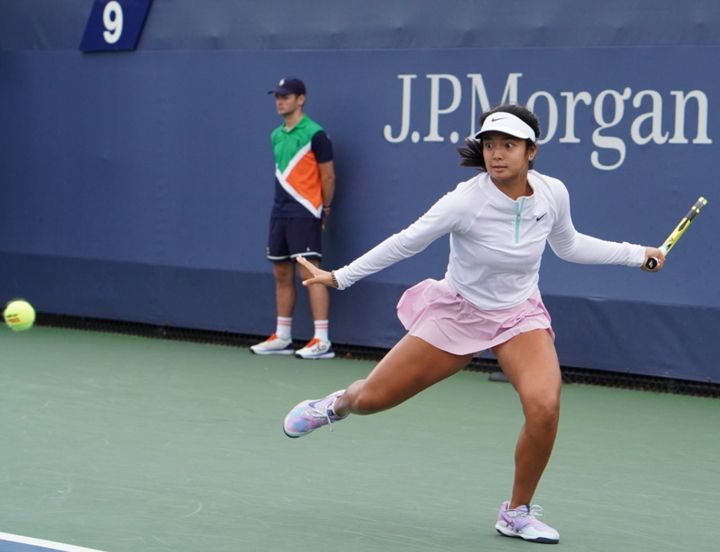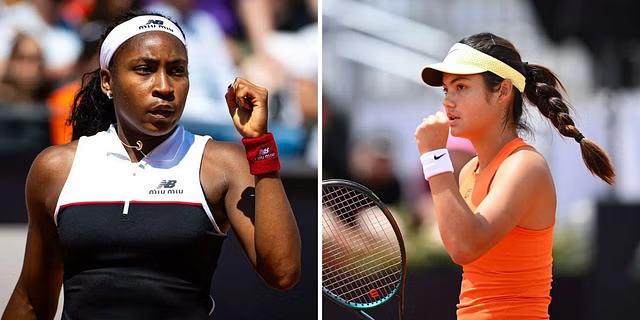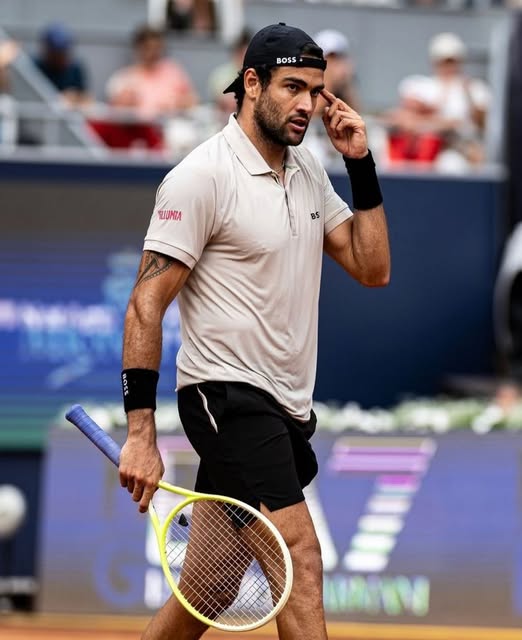In the intense world of professional tennis, Grand Slam finals are emotional cauldrons—filled with drama, legacy on the line, and often a single moment that shifts everything. One such defining moment occurred at the 2014 French Open final, when Romania’s Simona Halep, chasing her maiden Grand Slam, clashed with tennis titan Maria Sharapova in a heart-stopping, three-set thriller. But what lingers nearly a decade later isn’t just the brilliance of their shot-making or the sheer physicality of the duel—it’s what Halep herself later admitted: “I couldn’t stay focused.”
The reason? An argument with the umpire during one of the most pivotal points of the match.
In this emotionally charged blog post, we take a deep dive into the Sharapova-Halep French Open final, uncovering how a single heated exchange may have cost Halep the biggest prize of her career at that point—and how it shaped both women moving forward.
⚔️ A Rivalry Born on Clay
Before the match, the narrative was simple: Maria Sharapova was the queen of clay—though initially mocked for her early clay struggles, she had reinvented herself into a force on the red dirt. Halep, meanwhile, had blazed through the 2014 season and arrived at Roland Garros as the tournament’s dark horse. Though unseeded, she had won all her matches en route to the final in straight sets.
Sharapova had the experience. Halep had the momentum. And the stage was set for a clash that would be remembered for its grit, emotion, and eventual heartbreak.
🎾 The Final That Had Everything
Held on June 7, 2014, the women’s final between Simona Halep and Maria Sharapova was arguably one of the best Roland Garros finals in recent memory. It lasted 3 hours and 2 minutes—a marathon by any standard—and featured dozens of momentum swings.

Sharapova took the first set 6-4, Halep stormed back to take the second 7-6 (7-5 in the tiebreak), and then Sharapova triumphed in the deciding set, 6-4.
The scoreline told one story. The drama within told another.
💥 The Umpire Dispute That Changed the Vibe
Late in the third set, Halep became visibly frustrated following a contentious line call. A ball she believed was out was ruled in by the chair umpire. Halep, known for her calm and composed demeanor, uncharacteristically argued the decision. She walked toward the umpire, pointed to the mark on the clay, and began to protest. But the umpire stood firm.
“I couldn’t stay focused after that,” Halep later admitted in a post-match interview. “It’s not an excuse, but emotionally, I was impacted.”
It wasn’t a dramatic, racket-smashing meltdown. But for a player so reliant on rhythm and mental control, the sudden burst of emotion was uncharacteristic—and telling. In matches of this magnitude, the smallest lapse can spiral into a momentum shift.
Sharapova, sensing the change, raised her level. Halep, meanwhile, faltered—just enough for Sharapova to edge ahead.
🧠 Tennis is Mental Warfare
Tennis, as any top player will tell you, is played as much between the ears as it is between the lines. For Halep, the brief loss of focus was enough to disrupt her flow. She started second-guessing, hesitating—something unthinkable against an opponent as mentally tough as Sharapova.
Sharapova, a master of psychological pressure, didn’t let the moment pass. She began stepping into her returns more aggressively, yelling louder with every winner, forcing Halep to react, not dictate.
“I know how to win these matches,” Sharapova would say later. And she wasn’t wrong.
💔 The Aftermath: What Could Have Been
The loss was devastating for Halep—not just because of how close she came, but because of how it slipped through her fingers. She had the tools to win: court coverage, tactical discipline, and a forehand that pierced through the court.
But the emotional toll of the umpire clash became a turning point, a ghost that haunted the remainder of the match.
“I should have managed it better,” Halep confessed months later. “I let it get to me.”
Sharapova’s triumph, meanwhile, further solidified her clay-court legacy. Once dismissed as a “cow on ice” on clay, she had now won two French Open titles in three years. Her transformation was complete. Halep’s? Still in the making.
🌅 Redemption in Paris: Halep’s Journey Comes Full Circle
Four years later, Halep would finally lift the Coupe Suzanne Lenglen. In 2018, she returned to the French Open final, this time against Sloane Stephens, and overcame a one-set deficit to win 3–6, 6–4, 6–1.
It was a victory soaked in redemption.
Many credited the 2014 final with preparing her for this triumph. The heartbreak, the introspection, and yes, the umpire clash—it all became fuel for Halep’s fire.
“Now I understand what it takes,” she said after her 2018 win. “You have to lose one to win one.”
🗣️ Social Media Reacts: Fans Haven’t Forgotten
Even years later, fans still recall the 2014 final with a mix of awe and agony. On Reddit, tennis forums, and Twitter/X, many remember the umpire moment vividly, with some fans feeling Halep was hard done by.
“That call changed the match. You could see Halep’s face drop.” — @RolandFanForever
“Sharapova was ruthless. Halep needed that experience to grow. But man, that umpire moment was painful.” — @ClayQueenChronicles
Such emotional flashpoints create enduring legacies—not just for the players, but for the sport itself. Tennis isn’t just about who hits the hardest; it’s about who handles the moment.
🎥 A Final That Deserves a Documentary
If ever there were a women’s match worthy of a full-length documentary, this would be it. The contrast in styles, the emotional arc, and the post-match reflections from both players form the perfect narrative arc.
We saw the mental fragility of a rising star, the brutal efficiency of a champion, and a single umpire decision that tipped the scales.
Add in the slow-motion replays, raw interviews, and behind-the-scenes footage—and you’ve got a sports documentary waiting to happen.
🧩 What We Learned From That Day
- Focus is everything: In elite sport, emotional control can determine the outcome just as much as physical skill.
- Even the calmest athletes can be thrown off: Halep, usually composed, showed just how human she was in that moment.
- Experience matters: Sharapova’s past finals gave her an edge in knowing how to capitalize on disruption.
- Losses shape champions: Halep used her defeat to evolve, ultimately leading her to multiple Grand Slam wins.
- The umpire matters: While often overlooked, officiating decisions in key moments can have lasting impact—especially in matches of such high stakes.

💬 Final Thoughts: Halep’s Honesty Is Her Strength
In a sport where athletes often mask emotion behind PR-polished quotes, Halep’s honesty stands out. Admitting that an argument with the umpire disrupted her focus doesn’t show weakness—it reveals maturity. It shows a player in the midst of growth.
The Simona Halep vs Maria Sharapova French Open final isn’t just a match we revisit for the tennis—it’s a story of emotional volatility, competitive fire, and the fragility of focus under pressure.
Simona eventually got her moment. But on that hot day in Paris in 2014, it slipped away—and all it took was a single dispute to unravel it.


